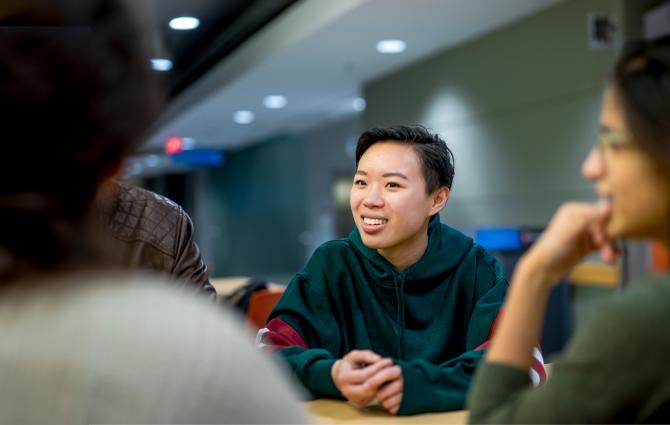UBC has lots of research opportunities for undergrads. Often, roles are open to students in second year and above, but first-years can still get involved in research.
As a first-year student, you may not have the necessary training, meet the specialization and year-level requirements, or have the necessary experience or knowledge to get into most of the research opportunities on campus.
Sometimes you may have to wait until you are in, or have finished, your second year. For Science students, you may find research opportunities actively advertised in your second-year courses.
That said, you can still find research opportunities as a first-year. Here are 3 things to remember:
- You may not hear back from or be accepted to roles you’ve applied to (especially research lab positions with profs). Take that in stride. Apply later on in your undergrad and show ’em!
- Much of the work you do, if you do get into research, may be limited to volunteer-based and entry-level responsibilities. You may not get to do much of the more skill-specific or practical in-lab work until later on.
- First year isn’t a competition of who gets into research first. Rather, it’s a time to ease yourself into university life, figure out where your interests lie and explore the major(s) you’d like to pursue.
Here are some ways to get into research during your first year at UBC:
Join a research-oriented campus club
Undergraduate Research Opportunities (URO) is an AMS club that helps students find research opportunities, regardless of faculty, year level, or past experience. Students can also present research they’ve done, or attend informational workshops on research methodology (e.g. completing literature reviews and writing abstracts).
URO runs the Research EXperience program (REX), which you can join as a mentee. You will be connected to mentors, such as grad students and postdoctoral fellows, and get help in developing a theoretical research project proposal to present as a poster at the Multidisciplinary Undergraduate Research Conference (MURC).
For updates and more information, check out URO and REX on Facebook.
Take advantage of connections to faculty
If you’re looking to get into research with specific professors, such as volunteering in their labs or helping with conducting their studies, look at their faculty pages, read through their research projects, and send them a concise e-mail showing your direct interest in their work.
Be sure to include who you are (not a novel-length bio), what you’re looking for or interested in learning, what your career goals are, and why specifically their labs.
If you are taking or have taken a class with an instructor whose research you’re interested in getting involved in, drop by the professor’s office hours and ask for opportunities. Some instructors, depending on your academic standing and experience level, may welcome you to get involved in basic-level research.
Feel free to chat with your Teaching Assistants (TAs) and ask them about research projects they’re currently involved in, and if you could participate in them.
Sometimes, because you took a certain class, you may be contacted by a faculty member in that department who is seeking volunteers to participate in research opportunities. These will likely take place in the summer following first year and include tasks such as updating and developing new course materials.
Some more examples of faculty-based (or department-based) research:
- The Department of Psychology offers Student Research Assistantship Opportunities. Talk to students holding psychology research studies about how they got involved.
- Engineering students can join an Engineering Design Team and collaborate on hands-on design projects
Getting involved in research in your first year shows that you have initiative and can help you stand out amongst your peers.
You’ll have a higher chance of getting into competitive positions and roles (remember that much of the hiring process comes from internal recommendations), such as becoming a Research Assistant (RA), undertaking a directed study, and receiving NSERC Undergraduate Student Research Awards (USRA).
Take the time to figure out what you're interested in. Good luck on your search for research!
Header photo credit: UBC Brand & Marketing




